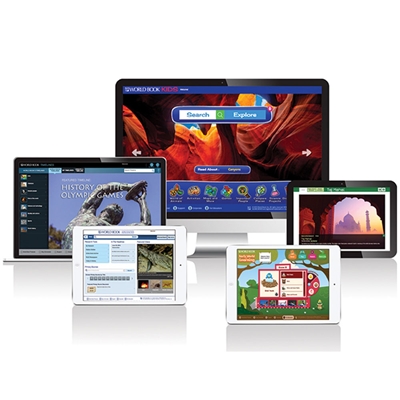Scientists at the International Potato Center in Lima, Peru, grew a “Unique” potato in simulated Martian conditions within the container at left, called the “CubeSat.” Credit: © International Potato Center
In Andy Weir’s 2011 book The Martian and its 2015 film adaptation, botanist-astronaut Mark Watney manages to grow potatoes while marooned on Mars. Watney hauls Martian soil into a pressurized, climate-controlled base and harvests a crop that provides food while his other supplies run out. Today, a group of Peruvian scientists are working on transferring this fiction to reality. Agricultural researchers from the International Potato Center (called the Centro Internacional de la Papa in Spanish, or CIP) in Lima, the Peruvian capital, have grown some rather hardy potatoes in an even worse environment than Watney’s Martian garden. The scientists’ research, carried out in the Andes Mountains of South America (where potatoes originated), might make farming on Mars or other barren places possible.
Human exploration of Mars is one of the primary long-term goals of such space agencies as the United States National Aeronautics and Space Administration (NASA) and the European Space Agency (ESA). But before people get there, scientists must solve a host of problems. First among them will be how to feed astronauts during an extended stay in the harsh environment of the Red Planet.

Potatoes originated in the often harsh environment of the Andean Highlands of South America. Credit: © Roux Frederic, Shutterstock
The ability to grow food during a space journey or while on the Martian surface has a number of benefits. Space could be saved in the spacecraft, allowing for other needed supplies, and instead of freeze-dried or tubular “astronaut food,” space explorers could eat a variety of freshly grown produce. But growing food on Mars—an extremely cold, dry, and nearly airless planet—will not be easy. Life as we know it cannot survive on its surface—yet.
The ability to grow food on Mars will greatly help in the planet’s exploration and possible settlement. Credit: NASA/JPL/Malin Space Science Systems
In Peru, the CIP scientists wanted to see if certain hardy potatoes could be grown in conditions similar to those found on Mars. To do this, the scientists built a sealed growing chamber (a garden in a box they called a “CubeSat”) and layered it with nutrient-weak, sandy soil similar to that found on Mars. They installed low-powered lights on a longer-than-Earth day-night cycle, and created a low-temperature and low-atmospheric pressure environment. They then tried growing dozens of varieties of potatoes in the simulator, irrigating them with nutrient-rich water. Of all the tested varieties, one called “Unique” grew best under the extreme conditions.
The Unique potato is exceptionally hardy, but it could not possibly grow on the surface of Mars without human intervention. The scientists grew the potatoes at temperatures around freezing, but surface temperatures on Mars can dip below -150 °F (-100 °C) at night. They were able to achieve growth with somewhat reduced atmospheric pressure (like the thin air at the top of the Andes Mountains), but Mars’s atmospheric pressure is a mere 0.7 percent of the atmospheric pressure on Earth. And, as far as we know, there is no nutrient-rich water on Mars. Liquid water near the Martian surface is only present during the planet’s summer, and it is extremely salty.

Potatoes are one of the world’s most important crops. The ability to grow potatoes and other crops in harsh conditions could prove vastly important as climate change alters the global environment. Credit: © David R. Frazier
The CIS experiment provided scientists and engineers with useful information on the extreme limits of vegetable cultivation. With the use of extremely hardy plants like the Unique potato, astronaut greenhouses could be kept cooler than Earth spaces, saving valuable electricity for purposes other than heating. Because plants can survive on carbon dioxide concentrations, excess carbon dioxide exhaled by astronauts could help provide the space garden’s protected atmosphere. If Martian soil could be manipulated for vegetable growth, it would negate the need to send bundles of Earth soil to the Red Planet.
Beyond its applications to space travel or Martian living, the CIS potato research has a more practical use here on Earth. As the climate changes from global warming, environmental conditions will become harsher in many places around the world. By studying how crops survive in extreme conditions, agricultural scientists may be able to discover and breed crops more resistant to the worst effects of climate change.
Untitled Document Can't view the linked articles? Subscribe to World Book Online

World Book Online delivers a progressive sequence of core databases supported by supplemental
tools, such as language translation, graphic organizers, and unique Webquests. Moving from
Early World of Learning to World Book Advanced, World Book Online aligns end-users with their
appropriate learning levels. Each stand-alone site provides additional features to support the
needs of users’ specific capabilities.
The World Book Difference
World Book combines cutting-edge technology with traditional editorial excellence to produce
authoritative, trustworthy, and unbiased content. The digital content is updated in real time and
carefully curated for each learning level. Accessible 24/7, the content is available on a variety of devices.
World Book Online combines 21st-century instructional techniques with timely information.
By breaking down complex topics and using easily understandable text, World Book Online helps to
build fluency and increase comprehension. Featuring single sign-on capability, these sites are paired
with highly visual content to engage even the most reluctant reader. Our collection of resources kindles
a lifelong learning experience for every user. This adherence to clarity, currency, and accuracy makes
World Book’s digital offerings an information hub for the classroom, library, and beyond.